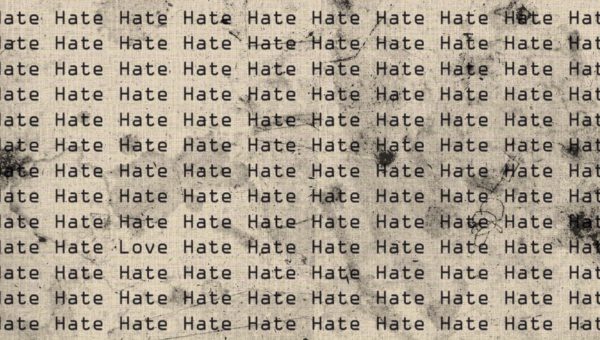As strong, unpleasant emotional reactions to physical or psychological pain, anger and hatred share more dissimilarities than similarities, especially regarding their sustainability and intensity. Although anger and hatred produce the same physiological responses–increased heart rate and respiration, rising blood pressure, tensed muscles–anger is a co-occurring emotional response while hatred is an isolated emotional response.
Anger is Spontaneous, Hate is Deliberate
You may get angry when you stub your toe or break your cell phone. But you don’t stay angry. Instead, your anger spurs you into some kind of action that helps reduce its intensity. For example, you stub your toe, angrily swear at the object you stubbed your toe on, rub your toe for a few minutes and–no more angry feelings.
Perhaps you find out a good friend has been talking about you behind your back. Your initial response to this revelation is to feel hurt, rejected and psychologically in pain. This pain quickly turns into anger, however, when you unconsciously find it too uncomfortable to remain focused on yourself. So you transfer your pain to the object-person you consider the culprit behind your pain. The anger you now feel is protecting (and preventing) you from coping with unsettling emotions that should be dealt with in a healthy manner. In addition, anger (in this particular instance) creates a seductive sense of control and righteousness while giving your self-esteem a temporary boost.
Unlike anger, which has no problem communicating itself to others, hatred tends to shut down the mind, limiting the ability of someone who is hating to communicate intelligently. Hatred is a way people deliberately separate themselves from contrasting ideas and individuals. To those who hate, the irrational boundary they erect between “me” and “them” actually attaches them to the object of their hate, although they fail to realize the duplicity of their hate. People who hate tend to lack stable self-identities. Hating gives them a sense of superiority over whomever or whatever they hate. In fact, hate is a self-perpetuating emotion since it provides justification for its existence. I hate them–therefore. I am better than they are and have a right to hate them.
When We Try to Cope with Feelings of Hate
Some people who hate employ a defense mechanism called splitting when they cannot deal with the fact that the object of their hate has “good” elements. When someone engages in splitting, they adopt a polarizing perspective towards the hated entity as being all bad, even though that entity obviously has good traits.
Society often plays a large role in encouraging us to split. We can see this currently in politics where opposing parties make use of propaganda to incite hatred for the enemy. You can also see it in fundamentalist religions that encourage hatred toward certain groups. For example, a person who is extremely disturbed by terrorist acts conducted by Islamic extremists may experience cognitive dissonance when they see Muslims advocating peace and anti-terrorist beliefs. Since the idea that Muslims may not be inherently violent does not affirm his hatred of Muslims, the person “splits” his perspective and decides to hate all Muslims. Essentially, splitting reduces the amount of psychological energy it takes to cope with hating something that may or may not deserve to be hated.
Managing Anger and Hatred Through Detachment and Introspection
To successfully manage anger and hate, you must learn to recognize the irrationality of your feelings, remove yourself from the situation making you angry or hateful and consider your feelings objectively rather than subjectively. If anger persists for a long period of time, it builds up; you may react with rage or hatred to a perceived slight that may have been taken in stride in a calmer state. Minor occurrences turn into volcanic eruptions. The idea in preventing hatred means taking care of your state of mind before you reach this intense place.






